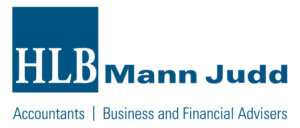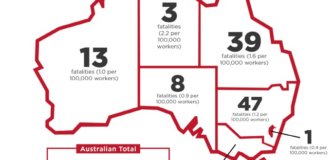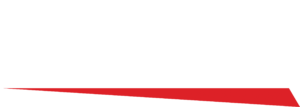Tax alert – HLB advise on how to benefit from business losses
Martin Sinclair Nov 04

According to HRIA advisory partners, HLB Mann Judd, when you’re starting a new business venture, it may take some time before the business becomes profitable. There may be other situations where an established business operates at a loss in a particular year. So, what are the tax implications of your business losses?
When your deductions in an income year are greater than your assessable income, you have a “tax loss”. You generally can’t receive a refund for a tax loss, but you can use it in other ways. If you’re a sole trader or individual partner, you may be able to use your business tax loss to offset other assessable income you earn personally. This includes: salary and wages from employment and income from personal investments. But watch out: if the loss is “non-commercial”, you can’t use it immediately to offset your other income. Instead, you must defer it.
Health insurance and your tax: uncovered
If you don’t hold private hospital cover – or are thinking about dropping it – make sure you understand the financial consequences. You could be hit with an extra tax surcharge of up to 1.5% or lost yourself extra premiums in future.
Levies, surcharges and loadings – the terminology around health insurance and tax can be bewildering! But if you don’t hold private hospital cover, you need to
understand how this may affect your tax. The Medicare levy surcharge (MLS) is a tax penalty you must pay if you earn above a certain amount and don’t take out a sufficient level of private hospital cover for you and all of your dependants. It’s designed to give you a financial incentive to insure privately. The MLS is applied by the ATO at tax time and included in your
assessment.
Small business CGT concessions: when do I qualify?
CGT concessions allow you to reduce – or in some cases, completely eliminate – the capital gain from the sale of a business asset, whether it’s held directly by your business entity or in another related structure. What’s more, the concessions also allow you to make extra super contributions – sometimes up to $1,515,000 – in connection with the sale of business assets. This is an attractive opportunity for many small business owners heading for retirement, especially given the restrictive annual contributions caps that usually apply.
There are various concessions available, each with their own eligibility rules. There are two basic conditions you must meet before you can access any of the concessions. The first requirement tests whether your business is “small” enough to qualify. There are two alternative tests: a turnover test and a net assets test. The second major requirement is that the capital gain must arise from the sale (or other CGT event) of an “active” asset.
Unpaid super: important amnesty update for employers
The launch of Single Touch Payroll (STP) will dramatically improve the ATO’s ability to monitor employers’ compliance with compulsory super laws moving forward. This electronic reporting standard is now mandatory for all Australian businesses and gives the ATO fast access to income and superannuation information for all employees. The government is getting tough on unpaid compulsory super guarantee (SG) contributions, but fortunately for businesses it has recently announced a revised “grace period” to rectify past non-compliance. All businesses should review their super compliance to consider what action they may need to take. The timing of your disclosure is important. The proposed new amnesty will cover both previous disclosures made since 24 May 2018 (under the old amnesty scheme that the government failed to officially implement) and, importantly, disclosures made up until six months after the proposed legislation passes parliament.
ATO to scrutinise every return for tax time 2019
The ATO has announced that it will scrutinise everytax return lodged during Tax Time 2019 as part of its ongoing focus on “closing tax gaps”. Assistant Commissioner, Karen Foat, said taxpayers who have done the wrong thing may be subject to an audit, even if the over-claim of deductions is minor. Third party data indicating under reported income, and deductions that appear high compared to people with a similar job and income level, tend to raise concerns, Ms Foat said. If you’re subject to an audit, it’s not always doom and gloom. In some cases, you may get a higher deduction if the ATO discovers that you haven’t claimed something you’re entitled to. For example, you may be entitled to a deduction for depreciation on a laptop or other technology used for work but had incorrectly calculated the claim or omitted it altogether. In the event of an audit and you’re found to have overclaimed, the ATO may apply penalties depending on your behaviour. If you’re found to have over-claimed based on a genuine mistake, for example, if you’ve claimed the costs which are private and domestic in nature that are sometimes used for work or study (eg. sports backpack or headphones), the ATO may choose not to apply penalties.
Beware of insurance changes in superannuation
Since July this year, super funds have been required to cancel insurance on accounts that have not received any contributions for at least 16 months unless the member elects to continue the over. In addition, inactive super accounts with balances of under $6,000 will either be automatically consolidated by the ATO with other accounts you may hold or transferred to the ATO. If your super is transferred to the ATO, any insurance will also be cancelled. This applies to life insurance, total and permanent disability (TPD) insurance and income protection (IP) insurance that you may have with your super fund. Another change coming to super funds in the not too distant future of 1 April 2020 is opt-in insurance for members under 25 years old and those with account balances of less than $6,000. From that date, members under 25 who start to hold a new choice or MySuper product will need to explicitly opt-in to insurance. Currently, the onus is on the ember to opt out of insurance if they do not want it.

For more detailed business advice or help with your questions, members can get a free initial consultation through their membership. To use HLB’s dedicated, free initial consultation, go to your HRIA member portal page.
To access further course discounts and promotional offers from HLB Mann Judd, become an HRIA member. To fin find out how to become an HRIA member, click here.










